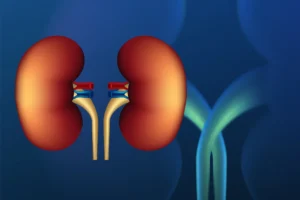 Kidney damage, also known as renal damage or kidney injury, refers to the impairment of the kidneys’ ability to function properly. Understanding everything about the causes, symptoms, and potential consequences of kidney damage is crucial for maintaining optimal health.
Kidney damage, also known as renal damage or kidney injury, refers to the impairment of the kidneys’ ability to function properly. Understanding everything about the causes, symptoms, and potential consequences of kidney damage is crucial for maintaining optimal health.
By adopting healthy lifestyle habits and seeking timely medical care, individuals can reduce the risk of kidney damage and promote overall well-being. If you suspect you may have kidney damage, consult a healthcare professional for evaluation and guidance.
Today, we’ll explore everything you need to know about kidney damage.
Understanding Kidney Damage
The kidneys play a vital role in filtering waste products and excess fluids from the blood, regulating electrolyte balance, and producing hormones that help control blood pressure and stimulate red blood cell production. Kidney damage can disrupt these essential functions, leading to various complications.
Causes of Kidney Damage
- Chronic Conditions. Chronic conditions such as diabetes and high blood pressure are leading causes of kidney damage. Over time, uncontrolled blood sugar levels and hypertension can damage the tiny blood vessels in the kidneys, impairing their function.
- Medications and Toxins. Certain medications, such as nonsteroidal anti-inflammatory drugs (NSAIDs), antibiotics, and chemotherapy drugs, can cause kidney damage if used improperly or in high doses. Exposure to environmental toxins and heavy metals can also harm the kidneys.
- Infections. Infections such as urinary tract infections (UTIs) and kidney infections can lead to kidney damage if left untreated. Severe or recurrent infections can cause scarring and inflammation in the kidneys, compromising their function.
- Obstruction. Blockages in the urinary tract, such as kidney stones or tumors, can obstruct the flow of urine and cause pressure buildup in the kidneys. Prolonged obstruction can lead to kidney damage or even kidney failure.
Symptoms of Kidney Damage
- Changes in Urination. Symptoms may include changes in urine output, such as increased or decreased frequency, blood in the urine (hematuria), foamy urine, or difficulty urinating.
- Fluid Retention. Kidney damage can lead to fluid retention, resulting in swelling in the legs, ankles, feet, face, or abdomen.
- Fatigue and Weakness. Impaired kidney function can cause a buildup of toxins in the blood, leading to fatigue, weakness, and difficulty concentrating.
- High Blood Pressure. Kidney damage can contribute to high blood pressure, which, in turn, can further damage the kidneys, creating a vicious cycle.
Prevention and Treatment
- Manage Chronic Conditions. Proper management of chronic conditions such as diabetes and high blood pressure can help prevent kidney damage.
- Stay Hydrated. Drinking an adequate amount of water can help prevent urinary tract infections and kidney stones, reducing the risk of kidney damage.
- Limit Medication Use. Use medications as directed by healthcare professionals and avoid over-the-counter pain relievers if possible, especially if you have underlying kidney issues.
- Seek Prompt Medical Attention. If you experience symptoms of kidney damage or have risk factors for kidney disease, seek prompt medical attention for diagnosis and treatment.
Picture Credit: Freepik
